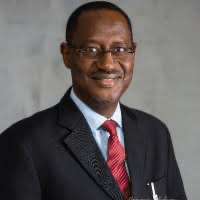The Federal Government of Nigeria has pledged to deliver more than 20,000 affordable homes across the country. As part of the long term plan of the housing project, the FG revealed that the initiative could produce hundreds of thousands of homes for Nigerians.
The declaration manifested on Tuesday through a speech delivered by the Minister of Housing and Urban Development, Ahmed Dangiwa at the 65th Anniversary of the Nigerian Institute of Architects (NIA) in Abuja. The minister represented President Bola Ahmed Tinubu at the event, providing insights to some of the administration’s plans on housing.
In his revelation, the president said the FG has commenced the urban renewal and slum development project across 26 pilot locations. He said that the Tinubu administration collaborated with state governments to improve access to roads, good water, renewable energy, and many more in slums.
Furthermore, Tinubu narrated how the FG is working to revamp old city centers by introducing a sustainable urban plan. He stressed that the federal government intends to leverage smart technologies to control rapid urban growth.
Read Also: Nigerian researcher develops world’s smallest GPS, Tinubu demands support for youth
Likewise, he added that the new housing project is aimed at less-privileged Nigerians, creating a pathway for them to enjoy decent shelter.
The new FG housing reform is unrealistic without the support of Architects – PBAT
However, in his speech, Tinubu went on to emphasize the role of Nigerian architects in assisting the federal government in achieving its goal. The president urged the experts to actively support the project to ensure its success.
He discussed how the FG is counting on the expertise of the architectural community to design inclusive housing prototypes while driving innovation in the sector. The president said architects must work with the government on regulatory frameworks such as design codes and zoning regulations.
More so, he called on the NIA to work closely with the housing ministry, state planning bodies, and other key stakeholders to infuse architecture to Nigeria’s national development policies. Lastly, the president described the professional group as the custodian of Nigeria’s spatial justice.









